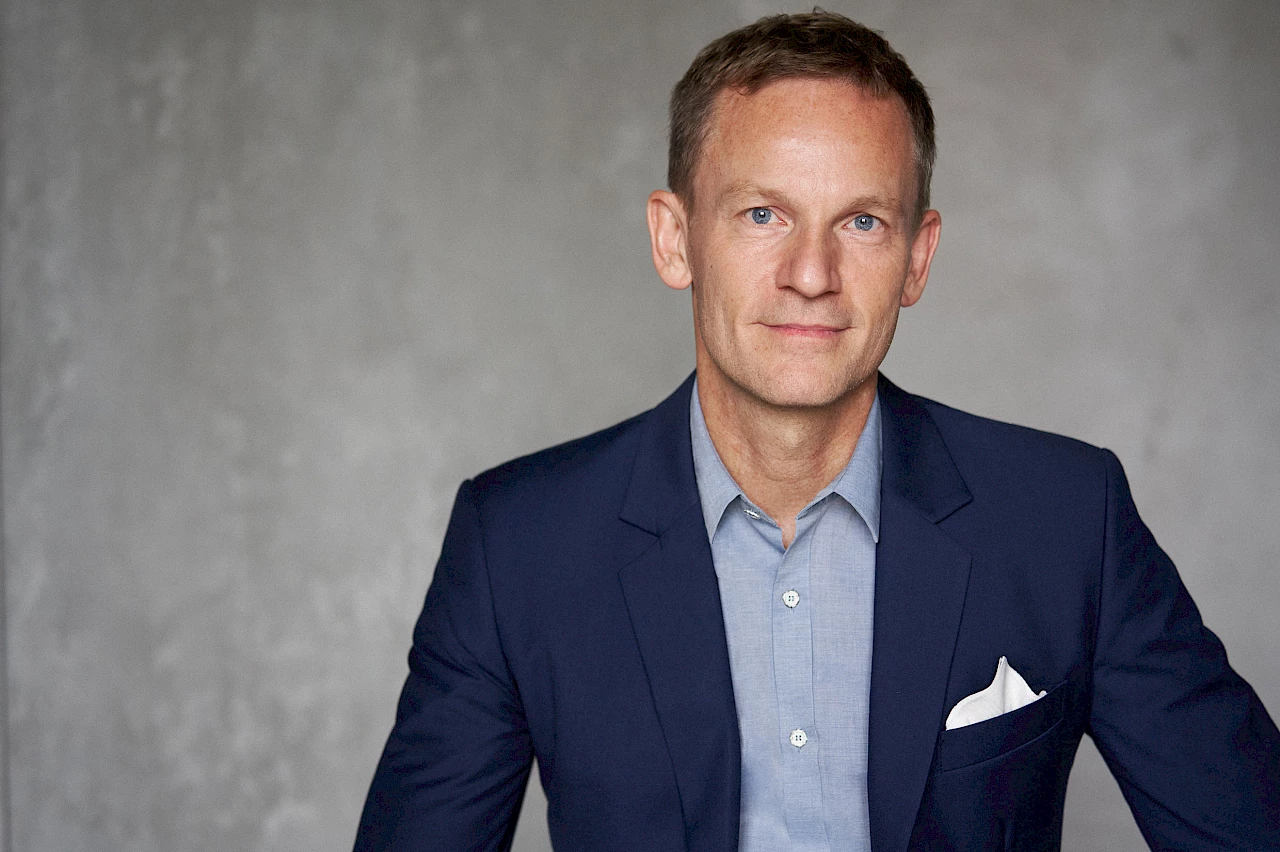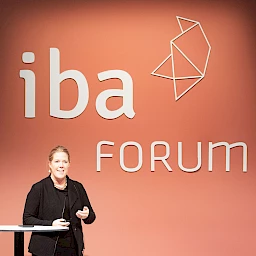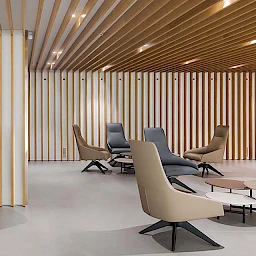Companies are faced with the task of getting their employees back to the office. On the occasion of the current discussion about the attractiveness of offices, we asked the spatial psychologist and designer Uwe Linke on spatial experiences, spatial quality and corporate hospitality.
In your book “Die Psychologie des Wohnens” (The Psychology of Habitation) you write that the way we live reveals who we are. What does this insight mean if we apply it to companies and their premises?
This concept is basically easy to transfer. Companies too pass along their DNA by making decisions. Which rooms, and how much space, does a company make available to its employees? What is a company willing to invest in office equipment? That refers not only to the investments that directly benefit the company but also to investments in the employees’ health and the pleasure they derive from their work. Another relevant question is whether a company that is furnishing its premises makes use of professional support in the form of an analysis of the users’ demands and needs. Unfortunately, the situation we see again and again is that an employee who just happens to have some free time is commissioned to rearrange the existing furniture solely in line with the management’s wishes.
Companies are facing the task of once again getting their employees enthusiastic about working in the main office. They want people to enjoy coming to the office and sharing ideas directly with their colleagues. How can office design support employees’ decision to return to the main office?
First of all, it must be said that office design in itself naturally can’t bring back intimidated or discouraged employees to face difficult managers. However, under normal conditions office design can create very good preconditions for motivating employees and encouraging them to seek out contact with their colleagues and managers on their own initiative. Physical spaces, including the office, are components of an individual’s personal identity, and they generate an atmosphere that can extend far beyond purely functional aspects.
It’s helpful to have good acoustics, application-based lighting and flexible workrooms, including user instructions and models for how to deal with a multi-space office and agile work processes. If the company has also found out what kind of work can be done efficiently by what kind of individual (introverted etc.) — in a group or preferably alone and undisturbed — that’s already a giant step forward. Including the employees in these processes and also taking their wishes into account makes them feel important and meaningful.
What sensory and psychological qualities can companies use to create lasting experiences of physical space?
In addition to the process of design creation that I’ve already mentioned, the choice of materials, as well as colour and furnishing concepts, play a big role. Relaxation and the atmosphere created by the room make a big difference. Everyone who has ever experienced a meaningful sacred space is familiar with the silent magic of spaces that address all of the senses. We unconsciously perceive smells, textures, acoustics and the authenticity of the materials, and these perceptions have a very strong impact even though it’s not evident or visible. We have to create rooms that captivate people and offer them a space where they can feel autonomous and inherently motivated.
What happens to communities when employees no longer see each other as often as before, or if they do their work only in a hybrid setup and spend less time together?
For some people it doesn’t make a lot of difference if they have to continue their community in a hybrid form, but others suffer greatly because so many opportunities for perception and communication are lost. Of course it’s possible to transmit information in a hybrid working situation, but in that case online messages would also be extremely suitable for conducting relationships.
Besides, in the future, tasks that can be performed by AI or a robot will be handled by the corresponding technology. At that point, the human work done in companies will require precisely those qualities that cannot be generated digitally — in other words, cooperation, a sense of community, doing favours for others and being open to inspiration. These are exactly the qualities that inspire others and generate something greater than the sum of the functioning parts.
At the IBA forum we are currently addressing the question of whether companies have to evolve from being employers to being hosts in order to be attractive to their employees over the long term. What’s your opinion about that?
Oh yes, hospitality is a good concept. But we have to remember that employees are not guests who want to be entertained; they create the content of their work themselves. In the future, the employer will be someone who offers work to be done. This offer to the employees must then be as attractive as possible, and it must give them the opportunity to evolve while also serving the company’s aims. We are actually learning this quite clearly from the present situation of the hotel and restaurant sectors, which are no longer finding employees — a situation that’s almost impossible to believe. Regardless of all financial incentives, we’re also learning that wages are no longer enough, because they are often only a compensation that doesn’t really work as an incentive.
Mr Linke, thank you for this interview.






